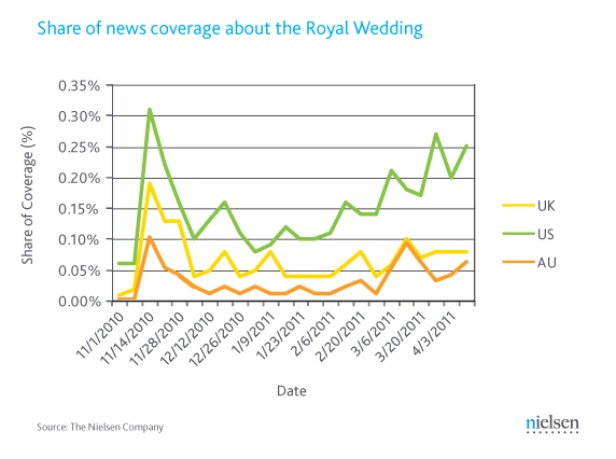Researchers in the Intelligent Systems Laboratory at the University of Bristol have presented a paper in which they track the national mood of the United Kingdom through Twitter posts. This is not the first, or even the largest, study to track public mood swings using Twitter. This study, however, is interesting because it specifically shows the increasing public anger leading up the the riots that erupted last year.
The study looked at 484 million tweets by more than 9.8 million users over a period of 31 months. The study covers the timeframe from July of 2009 to January of this year. Over the course of the last two years the UK has faced three major events: the budget cuts announcement from October 2010, the royal wedding of Prince William in Aprill 2011, and the riots in August 2011.
From the study abstract:
Our findings, besides corroborating our choice of method for the detection of public mood, also present intriguing patterns that can be explained in terms of events and social changes. On the one hand, the time series we obtain show that periodic events such as Christmas and Halloween evoke similar mood patterns every year. On the other hand, we see that a significant increase in negative mood indicators coincide with the announcement of the cuts to public spending by the government, and that this effect is still lasting. We also detect events such as the riots of summer 2011, as well as a possible calming effect coinciding with the run up to the royal wedding.
The study captured standard public mood measurements, such as sadness peaking on Halloween and Joy peaking on Christmas. However, the study captured something I find interesting about the mood of the British public around the time of the riots last year. In the month leading up to the riots, anger can be seen spiking heavily, and the riots are followed by a cathartic lowering of anger. The odd part is that fear during the riots did not have nearly as significant a rise as did anger. Fear did match anger, though, when the budget cuts were announced in October 2010. This suggests to me that the British public fears poverty more than London or Manchester being on fire, but I, like the authors of the study, leave such interpretations to social scientists.
The study was presented at the Workshop on Social Media Applications in News and Entertainment being held in Lyon, France. The workshop is co-located with the World Wide Web 2012 conference. The authors of the study are Thomas Lansdall-Welfare, Vasileios Lampos, and Nello Cristianini.


